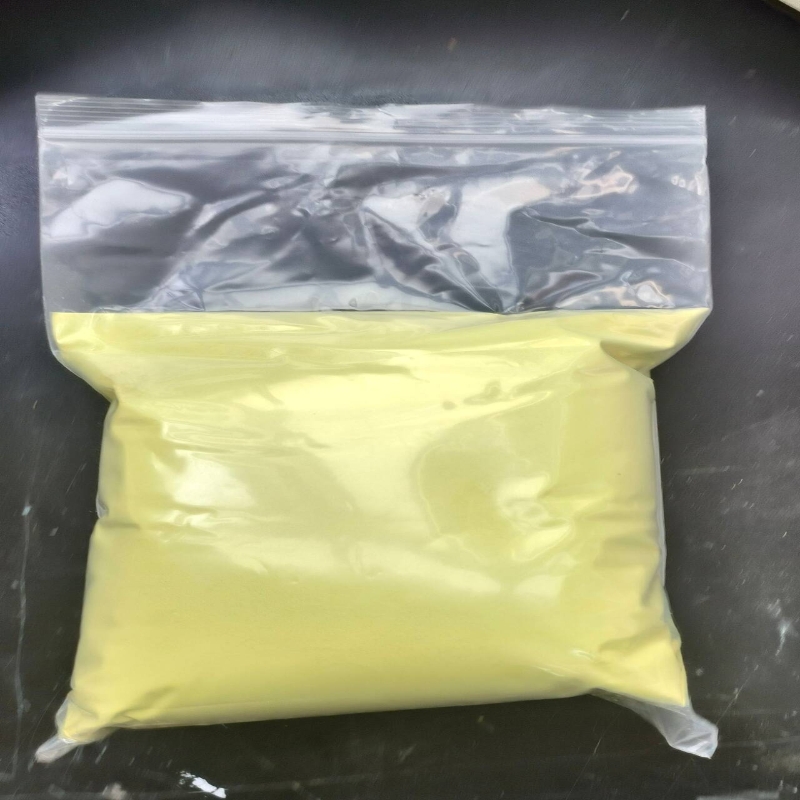-
Categories
-
Pharmaceutical Intermediates
-
Active Pharmaceutical Ingredients
-
Food Additives
- Industrial Coatings
- Agrochemicals
- Dyes and Pigments
- Surfactant
- Flavors and Fragrances
- Chemical Reagents
- Catalyst and Auxiliary
- Natural Products
- Inorganic Chemistry
-
Organic Chemistry
-
Biochemical Engineering
- Analytical Chemistry
- Cosmetic Ingredient
-
Pharmaceutical Intermediates
Promotion
ECHEMI Mall
Wholesale
Weekly Price
Exhibition
News
-
Trade Service
A paper published in Pediatr Transplant recently noted that placental-sourced membrane substation cells (DSCs) successfully treated acute gastrointestinal graft anti-host disease in children.
in this study, a 1-year-old suffered life-threatening acute gastrointestinal graft anti-host disease after an allogeneic hematopoietic stem cell transplant and developed resistance to steroids and mycophenolic acid (MMF).
finally received placental source membrane substation cell therapy, the overall situation improved.
four weeks of observation, the child was in complete remission.
the researchers concluded that placental-sourced membrane-based cells were safe and effective in treating severe acute bowel graft anti-host disease in children.
case, placental source membrane substation cells can be used as a three-line treatment.
similar reports on the safety and effectiveity of placental-source cell transplantation treatments.
The Karolinska Institute in Sweden assessed the safety and effectiveness of the treatment of hemorrhagic cystitis using placental-sourced membrane-based cell therapy after a placental-sourced physiotherapy, and intravenously treated 12 patients with placental-sourced molten lining cells, where visible hematosis disappeared on the 28th day after treatment.
The graft anti-host disease graft anti-host disease (GVHD) is due to the transplantation of T lymphocytes in the foreign body provider transplant, the recipient launched a series of "cytokine storm" stimulation, greatly enhanced its immune response to the recipient antigen, targeting the recipient cells to launch cytotoxic attacks, of which the skin, liver and intestines are the main targets.
transplant anti-host disease can be divided into acute and chronic, is a multi-system damage (skin, esoviruses, gastrointestinal, liver, etc.) systemic disease, is one of the important causes of post-transplant death.
worldwide, more than 30,000 patients receive allogeneic bone marrow transplants each year, and the number is increasing year by year, with about 50 percent of these patients suffering from acute (GVHD), 20 to 25 percent of whom are children.
in the most severe forms of GVHD (C/D or III/IV), the mortality rate is still as high as 90 per cent, despite the best medical standards.
do I choose cells from placental sources? The placenta protects the fetus from the mother's immune system during pregnancy and provides an off-the-shelf source of substring cells.
placental-sourced membrane substation cells can be stored well in the laboratory and frozen in liquid nitrogen until use, with a survival rate of more than 70%.
the article also notes that placental-source membrane-based cells have a more direct immunomodulation effect and that if used in the early stages of treating graft anti-host disease, there is hope of preventing a series of symptoms, such as bleeding and infection.
such as placental-source interstitial stem cells, as erythrogen stem cells, can differentiate from a variety of tissue cells, with low immunogenicity, hematopoietic support, immunomodulation and angiogenesis and other effects.
study concluded that the therapeutic role of inter-placental-source charged stem cells is mainly due to the immunomodulation function and its powerful side secretion function under the regulation of inflammatory environment, which can be used to treat a wide range of degenerative and inflammatory diseases.
placental-source stem cells have the advantages of strong proliferation and differentiation, low immunogenicity, good gene stability, no ethical barriers, abundant quantity, etc., and are more suitable for large-scale preparation, which can be applied to clinical treatment as a generic stem cell drug in the future.
placental source cells offer hope for survival for patients with anti-host disease of the graft.
years ago, in order to prevent the occurrence of anti-host disease of transplants after bone marrow transplantation, the PLA 307 hospital team transplanted placental-filled stem cells with hematopoietic stem cells, which increased the success rate of transplantation, and thus won the award of scientific and technological progress.
the clinical application of placental-source cells in October 2017, the State Administration of Food and Drug Administration (NMPA) issued the Measures for the Administration of Drug Registration (Revised Draft), reaffirming that cell therapy products can be declared and marketed as pharmaceutical products! This also presents a greater opportunity for the declaration of placental source cell drugs.
, 12 new interstate stem cell IND drugs have been clinically approved, including placental sources of intercharged stem cells.
placental source cells have been widely used in the treatment of disease research, including this time the new coronary pneumonia.
, placental cell-based therapeutic products are getting closer to the market, and some have entered critical pre-market trial stages.
in recent years more active in research products such as PLX-PAD, the use of placental-based interstitiogenic adhesive adhesive cells, is designed to treat patients without tissue or genetic matching.
these cells release soluble biomolelemes, such as cytokines, coercion factors, and growth factors;
images from Puristem's official website PLX-PAD are one of the key products developed by Pluristem Therapeutics, an Israeli placental cell therapy company.
is understood to have passed accelerated approval paths in the U.S. and the European Union , including the FDA's Rapid Qualification and the European Union EMA's Adaptive Pathways Program , for the treatment of limb isoemia .
addition, PLX-PAD has been used in clinical studies of other adaptations, including intermittent lameness, orthopaedic adhesives, pulmonary hypertension, and women's health, some of which have entered Clinical Phase III.
the placental source cell market is growing rapidly with consumers' in-depth understanding of cell therapy and policy support from various countries.
placenta is a treasure trove of god-given stem cells.
recent years, the number of clinical applications of stem cells and the emergence of stem cell therapy for chronic diseases, the global stem cell market will grow rapidly in the future.
the global stem cell market to reach $270.5 billion by 2025.
hope that stem cell technology research will lead to more breakthroughs that will bring good news to patients.
References: 1. Successful treatment with placenta-derived decidual stromal cells in a pediatric patient with life-threatening acute gastrointestinal graft-versus-host disease. Pediatr Transplant. 2017 Aug; 21(5) Cymerus™ iPSC-MSCs significantly prolong survival in a pre-clinical, humanized mouse model of Graft-vs-host disease. Stem Cell Res. Author manuscript; available in PMC 2019 May 31.




![2-(Hydroxymethyl)benzo[b]thiophene](https://file.echemi.com/fileManage/upload/cas/593/e79a972f-b55d-4dc1-9113-841c417e0a89.png)


